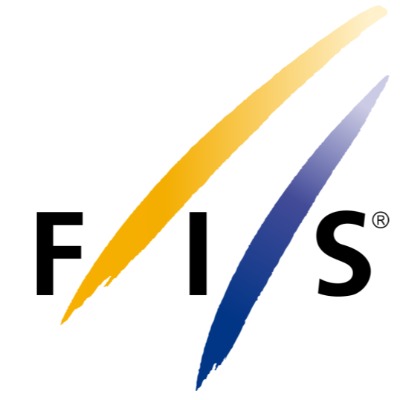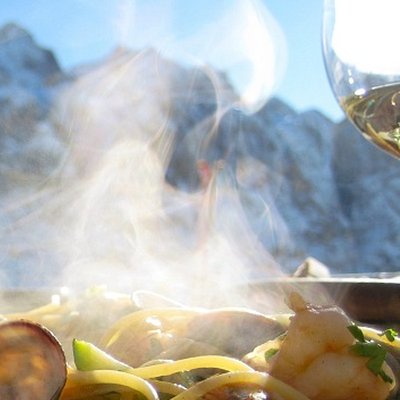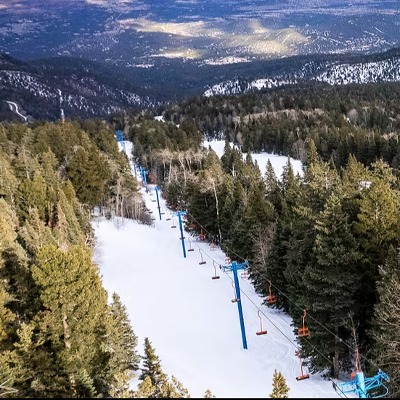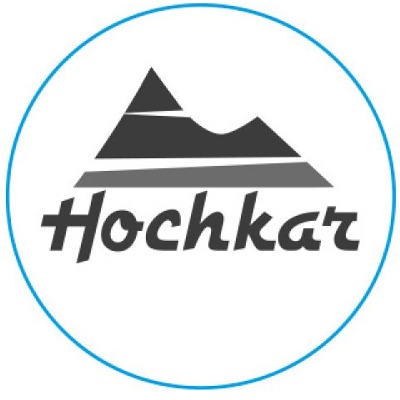Rossignol CEO Bruno Cercley Talks To ISPO. Rossignol Is Performing Better Than The Market

Rossignol’s CEO Bruno Cercley speaks about the Chinese winter sports market, electric mountain bikes and Henrik Kristoffersen’s influence on freeride skis.
Winter sports, bike and trail running group Rossignol had an outstanding sales season and recently acquired bike manufacturers Felt Bicycles and Time Sport as well as apparel brand Dale of Norway. A very optimistic business environment at Rossignol is topped off by a partnership with the Chinese investment company IDG Capital.
In an interview Bruno Cercley, CEO of the Rossignol group, talks about business insides, how the Rossignol Group athletes won 72 medals at the Winter Olympics and which sector the group wants to conquer next.
How the Winter Sports Industry Is Planning for the Future
“We ended the season with a plus of five percent”
ISPO.com: After a great sales season during a good winter in 2017/18, how optimistic are you heading into 2018/19
"Bruno Cercley: As you mentioned, the year went very well for us. We ended the season with a strong momentum and sales growing by more than 5% versus last year. Our product portfolio is good. We are selling more and more high-end-products. The success of our new Hero Racing line is an illustration of this trend – which is very good news for us. All in all, it looks like our brands perform better than market. We think Rossignol is the number one skiing brand worldwide concerning alpine and nordic skis and we are the number two group in ski boots with our brands Rossignol and Lange.
"But there are more reasons, why we are truly very optimistic: Number one, we are expanding our business to Asia with IDG Capital, our new Chinese business partner. Number two, we have put considerable effort into expanding beyond the business of winter sports and, last but not least, we are very proud to have such a great team, which we call “Band of Heroes”: Our athletes were more successful than ever this year.
Let´s talk about the Olympic skiers Henrik Kristoffersen and Frida Hansdotter and all the other highly decorated Olympians, who we met at the Rossignol headquarters. Many of them were extremely successful at the Olympic Winter Games 2018 – were these medals from Pyeongchang just nice-to-have from a marketing perspective or really important for your brand development?
"We earned a total of 72 medals at the Olympic Games with all our brands, 39 with Rossignol alone. That’s a huge achievement. The Games in Pyeongchang were the best ones for our athletes since the last fifteen or twenty years. But believe me: It´s not just marketing! It’s a fully portable business model and we really do everything to improve our technologies through the athletes’ feedback and implement these new developments in our commercial products.
“It's very important for us to continue to develop leading technology”
Could you please explain that a bit more?
"We invest in professional sport to validate innovation. The athletes are using our newest products, which have not been launched yet. For example, one of the main topics in professional skiing at the moment is to reduce vibration. One of the ways to decrease vibration of the tips is to reduce the weight. We worked on the structure of our alpine skis for our professional athletes and through that we’ve learned many things we have been able to apply to our freeride skis as well. It's very important for us to continue to develop leading technology. And that’s why our athletes’ feedback is so crucial for us.
But this is not something other brands don’t do – why do you think Rossignol is special?
"That is true. But on the athlete side, I do know some skiers, who are performing exceptionally well and are fantastic athletes, but who can’t communicate effectively with their equipment sponsors. It's like in Formula 1: A really good driver is able to tell the crew exactly which parts of the car have to be improved. This is exactly the same story with skiing.
"You can have the very best athlete, but if she or he is not able to communicate with you, you don’t make progress with your skis, because you do not understand what's happening. At Rossignol we are really lucky to have people like slalom world class champion Henrik Kristoffersen or biathlete Martin Fourcade, five time Olympic Champion, who are very good at working with us. They are trying to translate their feelings in action plans, which we use to develop our plans together on our products.
That’s probably a big investment, is it paying off? How much of your budget is used to sponsor professional athletes?
"R&D including Racing is about eight percent of our sales budget. So it's quite a lot – but we get the return on our investment!
How do you count this return?
"It's very difficult to count the return on investment. But, if you don't do it, if you don’t invest in racing, you really have a big problem. Rossignol is historically known as a racing brand, it’s in our DNA. We need to participate in races. This is fully part of our business model - and by doing this, we are working a lot more with the community, which is connected with our racing products.
Could you explain that a bit more?
"We have to produce content for the community. We are very close to the ski clubs worldwide. These kids have their heroes. You yourself mentioned the Rossignol “Band of Heroes”. Not only the big players, also the little kids in the clubs are part of this “Band of Heroes”. It’s all about transmission, sharing, passion for Racing whatever your level. We love to join the small races. We are everywhere to support the sport and its fans! This is so important for us.
Because racing is part of your DNA?
"That´s it. We aren’t a company that just signs a big check with an athlete just to create a pro team from scratch. We really wouldn’t be comfortable with that. We are much more comfortable with athletes who grew with us. We are not here to give money to athletes - we are here to make them win races. That’s very different.
But if we look at the Asian market and your business deal with IDG Capital, that’s a new situation for Rossignol now: You need athletes in China. And you have to do it from scratch.
"Obviously China is a big target market for all brands connected with winter sports. One day the skiing business in China is going to be really big. The question is not if it is going to be big, just when! How fast will sport in general develop in China? There is a very strong push from the government, especially for winter sports. We as a brand want to be there. We are already very active in China today. We have been selling in China for years. But because we wanted to create new potential now, we needed a solid partner.
Your new partner is IDG Capital, who entered the shareholding structure of Groupe Rossignol through a 20% capital increase.
"IDG is an investment company who owns twenty percent of the French football club Olympique Lyonnais. Why? Probably because professional football is important to China and building a strong professional team that could win one day the world cup is a good dream.. The presence of IDG is a good indicator about Chinese eagerness to learn football at the highest level. Interest for skiing is likely to be the same approach. China is hosting the Olympic Games in 2022. There is a huge need in China for professionalism in sport, especially in racing, and in organizing, a whole eco-system to grow champions. Community building and key opinion leaders matter in the Chinese market
That’s China’s perspective. What’s Rossignol’s perspective?
"For us the best way to connect with the community and to establish a business model in China, as we did in Europe, in the US or in Japan, is to get partners with knowledge and connections like IDG, so that we can grow together, quickly and efficiently. Obviously it is one of our objectives to get future champions to ride our products, especially in China, where millennials are really following their key opinion leaders. They need to identify themselves with a hero.
What are your business targets in China?
"In about 10 years the Chinese market may be about twenty percent of the world market in winter sport equipment. This is why we need to be there.
"Rossignol will capitalize on its legendary history, its French roots and its iconic and leading image in skiing to offer Chinese consumers its heritage and the excellence of its know-how, in order to become the reference brand in this very fast growing market.
"Not only as a strong player in the winter sports equipment sector, but with our apparel collections as well. Rossignol apparel is growing steadily, on the slopes, in the resorts and also in the city with more urban collections.. Europe is developing at strong pace.. We are just starting in North America at the moment and we think, it's a good time to continue the success story in China now. These are very fashionable items that you can wear in a resort or in the city.
"If customers have an understanding what we are doing within the sport, if they feel like they are part of this community of passionate skiers, then they love to wear the styles in the city as well. And we think in China, there is a huge potential for this community feeling.
Where do you need the support of IDG?
"IDG can help in addressing these markets. They have introduced many brands in China. With 26 years of experience in China, IDG Capital has contributed to the growth of more than 700 major companies in China, including Baidu, Tencent, Xiaomi as well as to the development of international companies such as Moncler, Farfetch, InFront
"They manage key opinion leaders, they are in the media, they are everywhere. I think this way is more efficient, quicker to market, considerably reducing the risk of making bad decisions. We have a fully aligned interest and we can go full speed.
IDG got twenty percent of Rossignol. That’s a lot – too much?
"It is a good compromise. A stake level that allows our main shareholder to keep control and gouvernance and at the same time represents a good incentive for IDG to bring their expertise for achieving a common goal.
Let´s switch to another topic, the bike business. What’s new?
"Bike is very interesting for us as a category because it's very complimentary to skiing in the summer season
"Development of the Rossignol Group’s cycle offer is a natural next step given the similarities between skiing and cycling: they are both practiced in the mountains and share the same consumer user profiles as well as the same distribution networks. They are also complementary by their seasonality.
"We have customers who are ski retailers in winter and more and more become bike shops or bike rental shops in the summer, especially with the development of electric mountain bikes. It was a good strategy to look at the bike market and to create Rossignol mountain bikes. People trust Rossignol in the mountains as a brand.
"Moreover mountain bikes practice is growing, especially electric mountain bikes.
"This is why we decided to acquire Time Sport and Felt Bicycles, really good brands, especially with the development of carbon framing products. We bought these two brands, because we needed to acquire competences we didn't have. What we are trying now, is to put Felt Bicycles, Time Sport and Rossignol each in a strong position within the market: Rossignol means mountain bikes, Time Sport stands for high-end road bikes and Felt Bicycles’s core competence is in triathlon.
You’ve introduced the new Rossignol bikes at ISPO Munich 2018. Are you happy with the bike section at the tradeshow?
"Yes, at the tradeshow we have been able to show under the same umbrella the power, consistency and diversity of Rossignol brand and the new Rossignol extended product offers from Wintersports to Apparel and Mountain Bikes !
"As far as Rossignol mountain bikes you know we started from scratch. And sales are growing. This year it could be above five to six million Euros - which is still small, but we do not want to be too quick, we want to learn to make sure we have the right products and the right partners. It's a different business.
"Trail running, bike and winter sports - Rossignol is a key player in the outdoor segment
Could you explain that a bit more?
"It's a very competitive business. You have big players in the bike business. If you are just starting off, you have to be different and you need to have different products. Otherwise your costs are going to be higher than those of your competitors and it is going to be very difficult.
Is that the beginning of 365 days outdoor business for Rossignol?
"I think so. We have winter sports equipment, we have bikes, and don’t forget, we are also in trail running with our brand Raidlight, which is very interesting. We learn much more about multi activity offers. We have projects with resorts and local retailers. Our plan is to bring more consumers into the mountains. We really start to push multi activity offers to attract the consumers. This is the next big thing, and we are part of it: We are most likely the only group in the world with a strong position in winter sports equipment, bike equipment and running. We really serve all three activities in the mountains year-round!
How is the mix in percent today?
"Winter sports equipment is 70 percent, apparel is 15 percent, and bike is 15 percent.
How would you like the mix to be in the future?
"Good question. Although we think that our winter sports segment is of course going to grow, especially with China, we are sure that apparel should get a much bigger part than today. And bike as well. Rossignol had about 350 million Euros sales last year. Maybe in a few years it could be 500 million. My expectation is that apparel could be 30 percent then, maybe bikes could be 20 percent, and winter sports still 50 percent.
You acquired Felt Bicycles and Time Sport in the bike sector and you acquired Dale of Norway in the apparel sector. Are you still looking for new brands to buy?
"No, no. Practically we do not need more brands. Dale of Norway is fantastic for us, outstanding and well known. But we are not actively looking into acquiring any other brands at the moment.
Are there any plans to change the B2B / B2C mix?
"Obviously consumer markets and digital business are becoming more and more important in the way we work. But there are two different things, regarding our winter sports business: We need to talk to the consumer and we need to invest time and money in creating appealing and creative contents to be shared online to build engagement with the consumers, creating events to encourage practice and products testing, have the brand speak to the consumer to build affinity, loyalty and sustain high consumer demand. We need the consumers to be proud of being part of the community.
"On the other hand, we are not interested in selling these products directly to the consumer, because we think we need a certain level of service, provided by the retailers. We talk so vigorously to the consumers, so that they walk into an actual retail store and say “I want this Rossignol product”! We do it to create sales for the retailers, and to have a common interest between the retailer and the consumers. We do not sell skis as others sell sausages. It’s a technical product, it needs service, and it needs a trustworthy point of sale. We do have some e-commerce solutions with skis, with a strong link with our networks and in any case we ask the consumer to see a retailer for the service.
And in your other sections?
"For apparel it’s a little different. We have invested a lot in e-commerce with new platforms. But with bikes it's similar towinter sports, because the products are very technical. We absolutely need the connection with the retailer."













